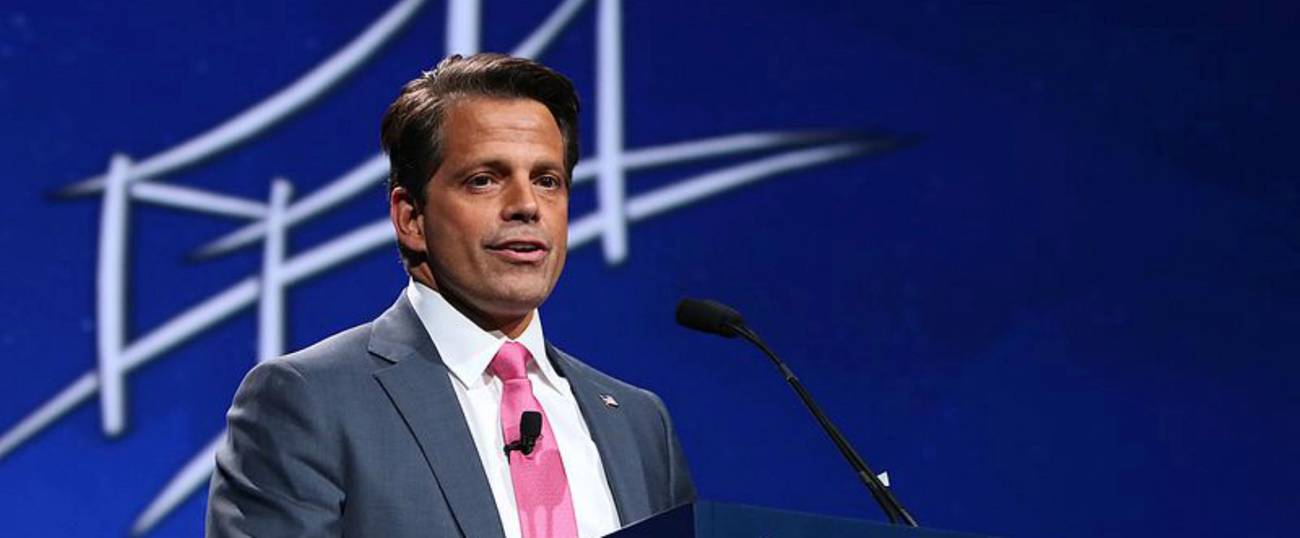ZOA President Meets With Top Trump Aide
Of his meeting with Anthony Scaramucci, Zionist Organization of America president Mort Klein speculates that his organization’s defense of Steve Bannon may have helped to foster the dialogue




The Trump Administration’s first reported meeting with a Jewish organization didn’t involve the community’s traditional institutional heavyweights. On Jan. 23, Axios reported that White House aide and former investor Anthony Scaramucci met with the Zionist Organization of America president Mort Klein in New York, in what The Forward described as the “first Jewish meeting with Trump officials.” Scaramucci is the White House’s director of the office of public liaison and intergovernmental affairs—the same position that the powerful Valerie Jarett held during both of Barack Obama’s terms.
The ZOA has Capitol Hill lobbyists and runs a pro-Israel legal institute, but it is hardly an AIPAC-scale behemoth—and it isn’t viewed as a mainline consensus organization the same way the American Jewish Committee or the Conference of Presidents of Major Jewish Organizations might be. Its views on Israel are decidedly right-wing: Klein opposes even the use of the term “two-state solution.” Regardless of whether it was the result of a conscious policy on the new administration’s part, Trump and his people reached out to a small, highly ideological group before they were willing to engage in a publicly reported meeting with other more traditionally influential or more mainstream Jewish organizations.
The meeting highlights an emerging split among Jewish groups in their approach to dealing with the new president. Although it urged Trump not to appoint retired Marine general James Mattis as defense secretary, the ZOA has been a reliable validator for Trump during a time when other Jewish organizations have been more oppositional or more cautious. When Trump named Steve Bannon as chief White House strategist a few days after the election, a number of Jewish groups opposed the move, including the Anti-Defamation League. The ZOA didn’t just jump to the former Breitbart executive’s defense: The organization controversially allowed Bannon to attend their annual dinner last November (at his request, according to the ZOA), then offered him a chance to speak, but he didn’t show. When Trump was still a Republican primary candidate, AIPAC issued an unprecedented apology for his speech at their March policy conference, which included attacks on president Barack Obama’s Israel policies. In contrast, ZOA called on AIPAC to apologize to Trump over the episode instead.
When reached for comment, Klein speculated that his organization’s defense of Bannon is one of the reasons the administration wanted to meet with him so early in Trump’s presidency. “I think there is some appreciation in the administration that I was defending one of their key people,” he said. Klein added that the new administration shares his group’s world view, and its particular framing of Israeli-Arab affairs. “This is the most pro-Israel, in a very serious sense…group of people around the president in memory. I can’t remember any president who had this many people who are that strongly supportive and understanding of the Arab-Islamic war against Israel.”
When asked for reaction to the ZOA’s meeting with Klein and whether AIPAC officials had met with the new administration yet, an AIPAC spokesperson replied that the group “do[es] not comment on any discussions we might have with either executive or legislative branch policy makers.”
Editor’s note: A previous version of this article stated that the ZOA had invited Bannon to its annual dinner last November. It has been updated to reflect comment from the ZOA, which clarified that Bannon had approached them.
Related: No One Is Afraid of AIPAC
Armin Rosen is a staff writer for Tablet Magazine.